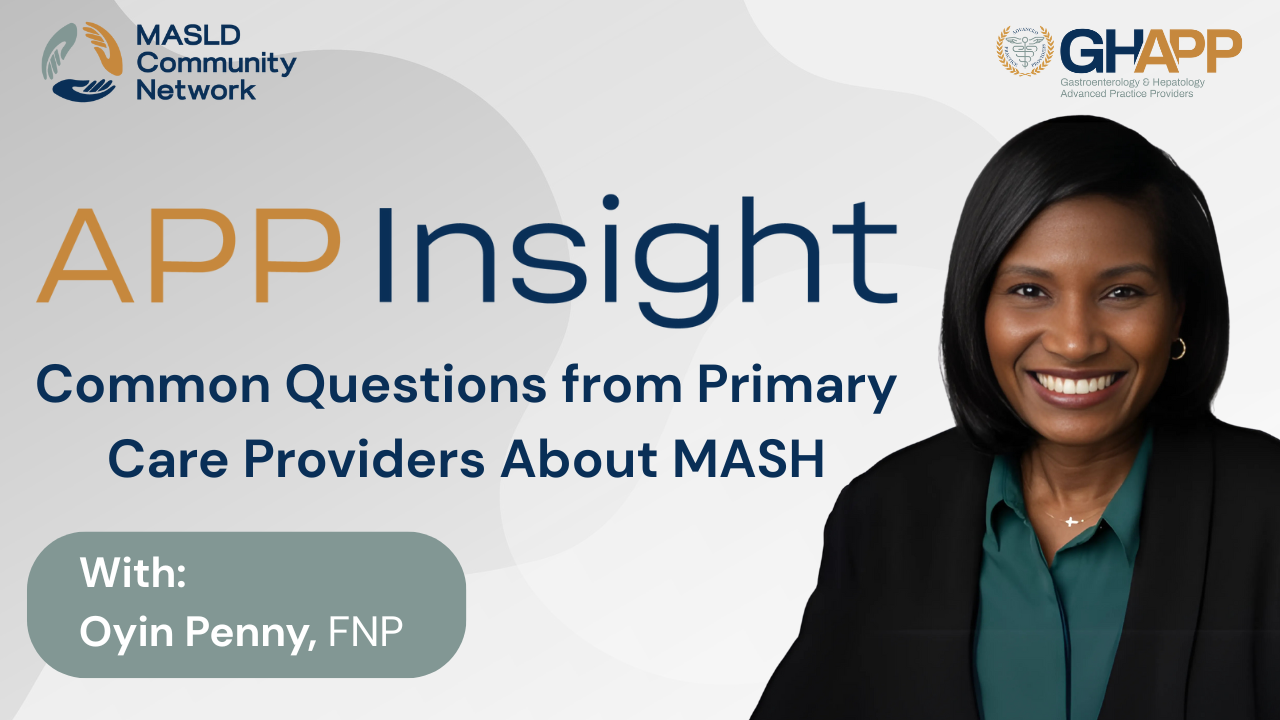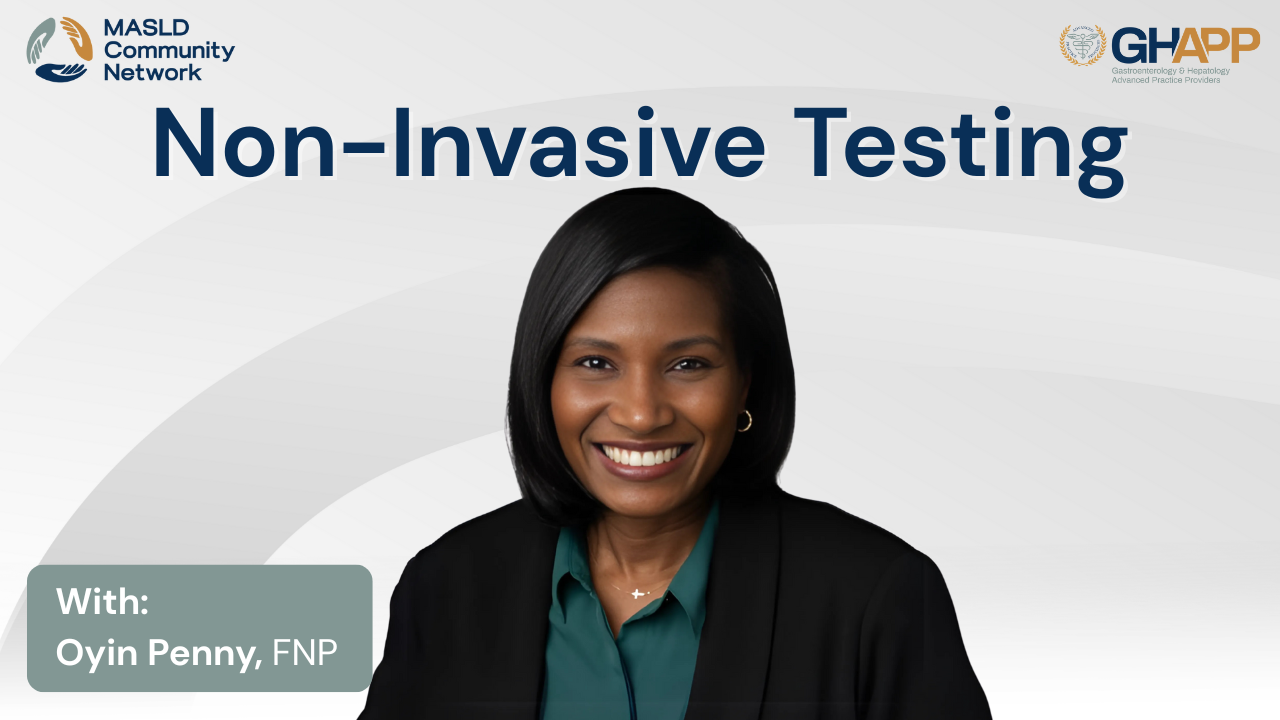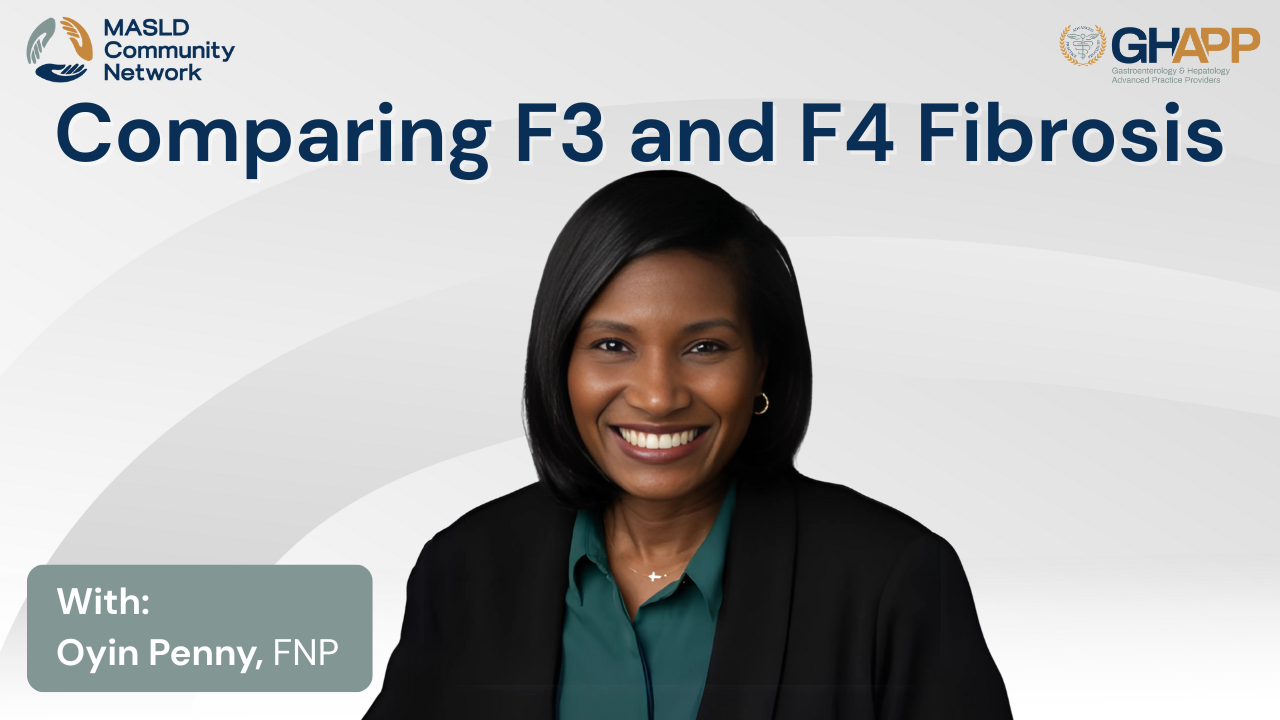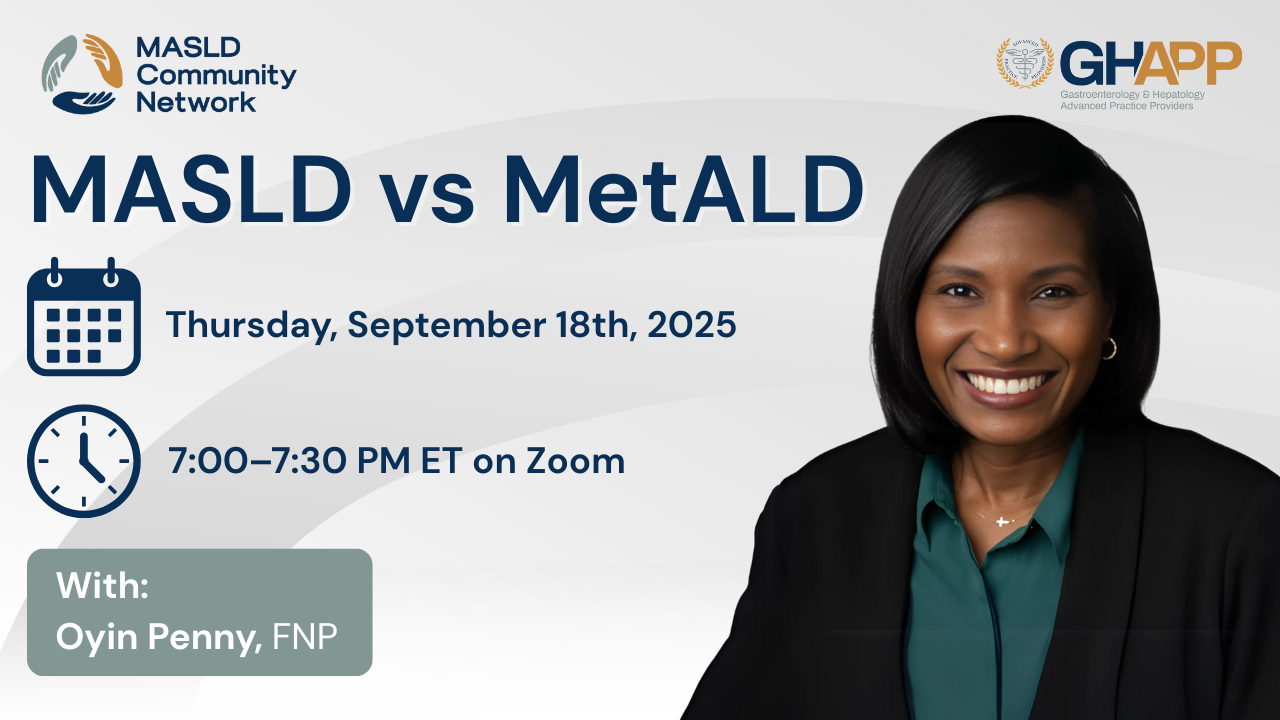
Oyin Penny
MSN, FNP
Location : Kansas City, MO, USA
BIO
Oyin Penny is a dedicated and experienced Nurse practitioner in Hepatology and Gastroenterology with a passion for providing comprehensive care to patients with various gastrointestinal disorders and liver disease. Oyin has 13+ years of clinical experience. She has an expertise in managing patients in conditions such as Steatotic liver disease (metabolic liver disease), chronic liver disease, hepatitis (acute or chronic), inflammatory bowel disease and functional GI disorders in both inpatient and outpatient settings. She actively collaborates with multidisciplinary teams to ensure her patients receive the best quality care.
Oyin is committed to a patient-centered care, with emphasis on education, disease prevention, and lifestyle modifications to improve health outcomes. In addition to clinical experience, Oyin is passionate about patient advocacy and mentorship. She is currently a Mentor for APPs for the ACG and also initiated and leads the KC Gut club for APPs in GI and Hepatology in the Kansas City area.
MASLD-MASH Content Featuring Oyin

Common Questions From Primary Care Providers About MASH

In this overview on the MASLD Community Network, Oyin Penny, FNP with Premier Gastroenterology, addresses some of the most frequent questions primary care providers have when caring for patients with metabolic dysfunction–associated steatohepatitis (MASH). Learn when to screen patients for MASH, the key risk factors that should prompt evaluation, and when referral to gastroenterology or hepatology specialists is most appropriate. Oyin also explains how to monitor disease progression using non-invasive tests (NITs) such as FibroScan, MR elastography, and ELF tests. Whether you are a PCP managing patients with obesity, diabetes, hypertension, or abnormal liver imaging, this video provides essential guidance to help you identify high-risk patients earlier and optimize their care. Stay tuned for more expert insights and practical education from the MASH Community Network.
Watch Now

Management of Life Style Modification

This video focuses on the comprehensive management of patients with metabolic-associated steatohepatitis (MASH), emphasizing lifestyle modifications, dietary adjustments, and exercise strategies. Key topics include the importance of addressing risk factors like diet, exercise habits, and alcohol intake, as well as referrals to medically supervised weight loss clinics or bariatric surgery for advanced cases. The speaker highlights the benefits of the Mediterranean diet, intermittent fasting, and avoiding ultra-processed foods while discussing the role of resistance training to combat sarcopenia and maintain muscle mass. Practical advice and tailored recommendations ensure a holistic approach to managing MASH and improving patient outcomes.
Watch Now

Third Step of Life Style Management

This video provides a comprehensive overview of emerging pharmacologic treatments for metabolic-associated steatohepatitis (MASH) and their tailored applications based on patient profiles. Topics include FDA-approved therapies, drugs in advanced clinical trials (such as semaglutide and lanifibranor), and the potential for combination treatments targeting both steatohepatitis and fibrosis. The speaker emphasizes the importance of patient-specific approaches considering metabolic profiles, obesity, and diabetes status, alongside lifestyle interventions. Additionally, the video discusses the evolving interdisciplinary care model and highlights the exciting progress in non-invasive testing and treatment advancements for F2-F3 fibrosis.
Watch Now

Approved Medication for MASH/NASH

This video provides detailed guidance on selecting and monitoring patients for emerging therapies targeting advanced fibrosis (F2-F3) in NASH. Key topics include contraindications for patients with cirrhosis, considerations for concomitant medications, and dose adjustments for statins. The video outlines ideal candidates based on specific thresholds for VCTE, MRE, ELF scores, and other non-invasive tests while emphasizing the importance of ruling out portal hypertension and other liver diseases. It also reviews a stepwise monitoring approach, focusing on tolerability at three months and efficacy assessments at six and twelve months, with an emphasis on histologic and non-invasive test improvements.
Watch Now

Types of Diet for the Treatment of MASLD

This video explores comprehensive strategies for managing metabolic-associated steatohepatitis (MASH), focusing on fibrosis risk stratification, lifestyle modifications, and pharmacologic interventions. Learn about dietary recommendations like the Mediterranean diet, exercise guidelines emphasizing resistance training, and the role of intermittent fasting and processed food avoidance. The video also highlights weight loss targets, diabetes management, and emerging therapies such as GLP-1 receptor agonists and bariatric surgery, all aimed at improving liver health and patient outcomes.
Watch Now

NITs to Identify High Risk MASH Patients

Explore advancements in non-invasive diagnostics and risk stratification for liver fibrosis and MASH. This video highlights tools like FIB-4, transient elastography, and innovative scoring systems (e.g., FAST and Agile) to identify and predict outcomes for high-risk patients. Learn about serum biomarkers, updated guidelines, and the role of lifestyle interventions alongside targeted therapies for managing metabolic risks and advancing care in hepatology.
Watch Now

Non-Invasive Testing With Oyin Penny

In this GHAPP MASLD Community Network presentation, Oyin Penny, FNP, from Premier Gastroenterology of Kansas City, explores the evolving role of non-invasive testing (NITs) in assessing MASLD (Metabolic Associated Steatotic Liver Disease) and MASH (Metabolic Associated Steatohepatitis). Through a detailed case study of a 65-year-old male with obesity, diabetes, hypertension, and hyperlipidemia, we review how imaging biomarkers such as FibroScan, MR Elastography, CAP score, and MRI-PDFF, as well as clinical prediction tools like FIB-4 and ELF score, are applied to evaluate fibrosis risk and guide management decisions. This session highlights the strengths and limitations of various NITs, emphasizes the importance of accurate fibrosis staging, and outlines when to repeat testing, escalate to hepatology referral, or initiate therapy. The discussion underscores the critical need for early detection, risk stratification, and proactive management of liver disease in patients with metabolic risk factors to prevent progression to cirrhosis and improve long-term outcomes.
Watch Now

Comparing F3 and F4 Fibrosis With Oyin Penny

Understanding the differences between F3 and F4 fibrosis is crucial in the management of MASH (Metabolic Associated Steatohepatitis) and other liver diseases. In this session with Oyin Penny, FNP, from the GHAPP MASLD Community Network, we explore a case-based comparison using non-invasive tests (NITs), including FibroScan, ELF score, and Fib-4, to highlight how staging impacts prognosis, treatment strategies, and long-term outcomes. Case 6A focuses on a patient with F3 fibrosis, discussing lifestyle modification, metabolic disease optimization, and the role of therapies like Resmetirom (Rezdiffra). Case 6B revisits the same patient profile but with F4 fibrosis, emphasizing advanced management including HCC surveillance, EGD screening for varices, and consideration of non-selective beta blockers. By contrasting these scenarios, this presentation underscores the importance of accurate fibrosis staging, risk stratification, and timely interventions to improve patient outcomes.
Watch Now

Alcohol and MASLD/MASH: Navigating the Complex Relationship

In this insightful episode, Oyin Penny, NP with Premier Gastroenterology of Kansas City, addresses the complex clinical challenge of managing patients with MASLD (metabolic dysfunction-associated steatotic liver disease) who also consume alcohol. Oyin shares practical, evidence-based strategies for screening alcohol use in MASLD and MASH, emphasizing the importance of creating a nonjudgmental, patient-centered environment. She outlines how to use tools like PEth (phosphatidylethanol) testing to objectively quantify alcohol intake and explains the synergistic hepatotoxicity that occurs when alcohol use coexists with metabolic liver disease. Oyin also explores when to initiate non-invasive tests (NITs), why alcohol can distort fibrosis staging, and how to time assessments and treatment appropriately. From setting SMART goals to recommending behavioral support, medications like naltrexone, and exploring mental health and social work interventions, this episode offers a full-spectrum approach to managing high-risk patients. Whether you're a GI, hepatology provider, or in primary care, this episode provides tools for personalized care, alcohol harm reduction, and effective long-term MASLD management.
Watch Now
FAQ's

Common Questions From Primary Care Providers About MASH

In this overview on the MASLD Community Network, Oyin Penny, FNP with Premier Gastroenterology, addresses some of the most frequent questions primary care providers have when caring for patients with metabolic dysfunction–associated steatohepatitis (MASH). Learn when to screen patients for MASH, the key risk factors that should prompt evaluation, and when referral to gastroenterology or hepatology specialists is most appropriate. Oyin also explains how to monitor disease progression using non-invasive tests (NITs) such as FibroScan, MR elastography, and ELF tests. Whether you are a PCP managing patients with obesity, diabetes, hypertension, or abnormal liver imaging, this video provides essential guidance to help you identify high-risk patients earlier and optimize their care. Stay tuned for more expert insights and practical education from the MASH Community Network.
Watch Now












